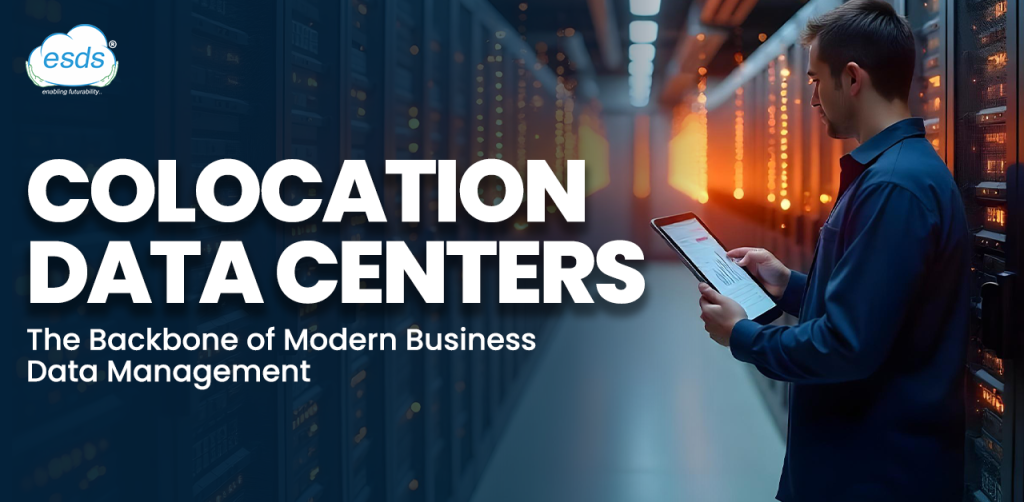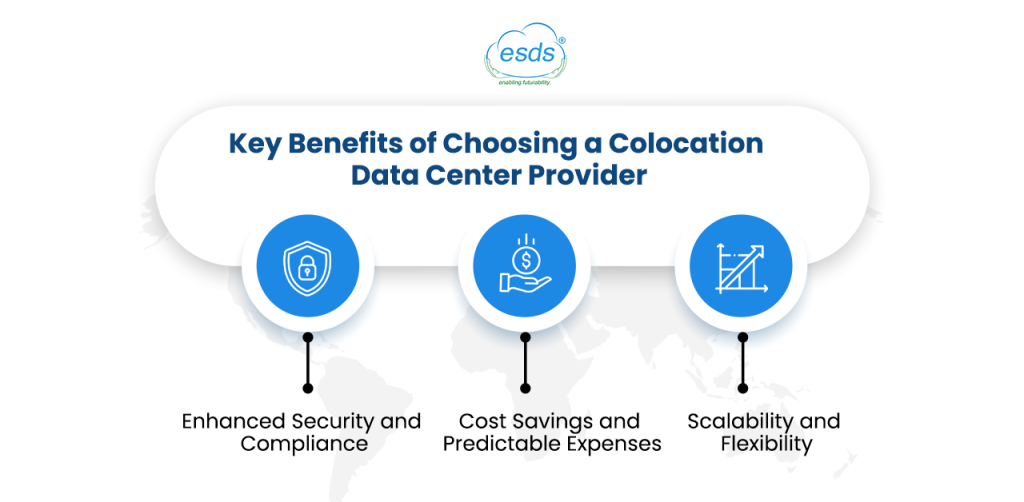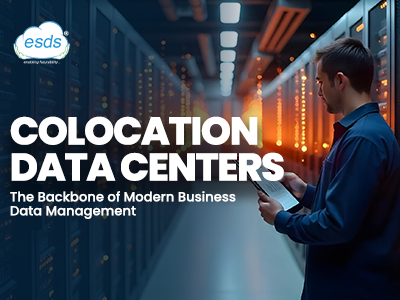Colocation Data Centers the Backbone of Modern Business Data Management

Today every business, whether it’s a startups or global corporations, needs reliable, secure, and scalable data solutions. As companies increasingly prioritize data as a core asset, they face a crucial decision: where to store it. Colocation data centers are fast becoming the go-to choice for businesses that need flexibility, robust infrastructure, and cost efficiency.
But what exactly makes a colocation data center such a powerful option?
Let’s understand the ins and outs of colocation data centers, explore what the best colocation data center providers offer, and understand why managed colocation services are essential for businesses today.
Apprehending the Importance of a Colocation Data Center
Also referred to as a ‘colo data center’, a colocation data center allows businesses to lease space to store their servers, networking hardware, and other Information Technology resources. Rather than making a huge capital expenditure to set up and manage an in-house data center, organizations can lease space, power and cooling services within a colocation facility run by a colocation service provider. This method enables a satisfactory trade-off between power and micromanagement of one’s own IT assets and a third party’s technological readiness and capacity, protection and constant operations assistance.
Colocation centers do provide that extra element of ease: they enable businesses to control their hardware and applications, while still being able to rely on the consistent quality of a professionally managed facility. This sort of versatility is helpful towards businesses that have changing IT requirements as they are able to shrink or increase their offerings without large amounts of investment.
Key Benefits of Choosing a Colocation Data Center Provider

When businesses select a colocation data center provider, they’re choosing much more than just a storage facility—they’re opting for enhanced reliability, high-security standards, and cost efficiency. Here’s why more companies are turning to colocation:
1. Enhanced Security and Compliance
Colocation centers are designed to meet stringent security protocols, both physical and digital. From 24/7 surveillance and biometric access to firewalls and cyber protection, these facilities provide multi-layered security that few businesses can match in-house. Additionally, most colocation providers adhere to strict compliance standards (like SOC 2, HIPAA, and PCI-DSS), ensuring that businesses meet necessary regulatory requirements effortlessly.
2. Cost Savings and Predictable Expenses
Building and maintaining an in-house data center involves high upfront costs and ongoing operational expenses. With colocation hosting providers, businesses pay only for the space, power, and cooling they use, making colocation a far more economical choice. Since costs are predictable, companies can budget more effectively and allocate resources toward growth.
3. Scalability and Flexibility
Colocation offers a flexible solution that scales with business growth. As IT needs evolve, businesses can quickly expand or reduce their space in the colocation facility without incurring major costs or disruptions.
Types of Colocation Services: From Basic to Managed Colocation Services
In the world of data center and colocation services, there are multiple service models tailored to meet diverse business requirements. Here’s a quick overview of colocation options:
• Basic Colocation: This is a standard option where businesses rent rack space, power, and cooling. The client manages their own hardware, software, and network configurations.
• Managed Colocation Services: A step up from basic colocation, managed colocation services include maintenance, monitoring, and sometimes even full infrastructure management by the colocation data center provider. This option is particularly useful for businesses that want the benefits of colocation without the overhead of hands-on IT management.
• Retail and Wholesale Colocation: Retail colocation is ideal for smaller businesses requiring limited rack space, while wholesale colocation is designed for enterprises needing substantial space and dedicated facilities. Each option offers distinct benefits in terms of cost, control, and scalability.
What to Look for in the Best Colocation Data Center
Choosing the best colocation data center is a strategic decision that impacts a company’s operations, security, and growth. Here are some critical factors to consider:
1. Uptime and Reliability
Look for data centers that provide industry-leading uptime. Tier III and Tier IV facilities are common among top colocation providers, guaranteeing uptime of 99.982% and 99.995% respectively. The best colocation data centers ensure that businesses experience minimal to zero downtime, which is crucial for industries like finance, healthcare, and e-commerce.
2. Advanced Redundancy
Redundancy is essential for minimizing downtime and ensuring smooth operations during maintenance or unexpected disruptions. Top colocation centers implement N+1 or 2N redundancy measures for power, cooling, and network connectivity to prevent single points of failure.
3. 24/7 On-Site Support and Monitoring
Leading colocation services providers offer around-the-clock support, providing remote hands, network monitoring, and troubleshooting. For businesses, this means peace of mind knowing that any technical issues are handled swiftly.
4. Sustainability and Eco-Friendly Operations
Increasingly, businesses are looking for data centers that align with their environmental goals. Some of the best colocation data centers now prioritize renewable energy, efficient cooling systems, and eco-friendly practices that reduce the overall carbon footprint of IT operations.
Colocation and the Future of Data Management
Because of the continuous growth in data generated by businesses in recent years, colocation has become a prerequisite in establishing future-driven data management techniques. There are trends that are changing the way colocation centers are run such as AI-enabled monitoring, integration of hybrid clouds and sustainability. Presumably, with these trends and the emergence of advanced features such as automated backups, real time monitoring, AI-based diagnostics in the colocation hosting services, the companies are expected to outrun potential problems and deliver high performance at the same time.
Colocation is proving to be popular as a means of disaster recovery and business continuity as well. By establishing a focus on the business and the losses that come when there is downtime or disconnection, businesses are sensitive to geography and reliability given by the colocation providers able to backup data and operations.
Conclusion:
Choosing the right colocation provider is a game-changer for businesses aiming to balance cost, control, and scalability in their IT infrastructure. By partnering with ESDS as managed colocation services provider, companies can harness the power of a professionally managed, secure, and efficient infrastructure without the complexity of running an in-house data center.
Whether you’re a small business seeking affordable storage or an enterprise with complex IT demands, ESDS offers a future-ready solutions. Evaluate your needs, consider the benefits of colocation, and choose ESDS colocation services to support your growth in the digital age.
- Security Operations Center (SOC) Services: A Measured Approach to Digital Threat Management - April 11, 2025
- The Impact of AI on Colocation Services - February 13, 2025
- Colocation Data Centers the Backbone of Modern Business Data Management - November 12, 2024
